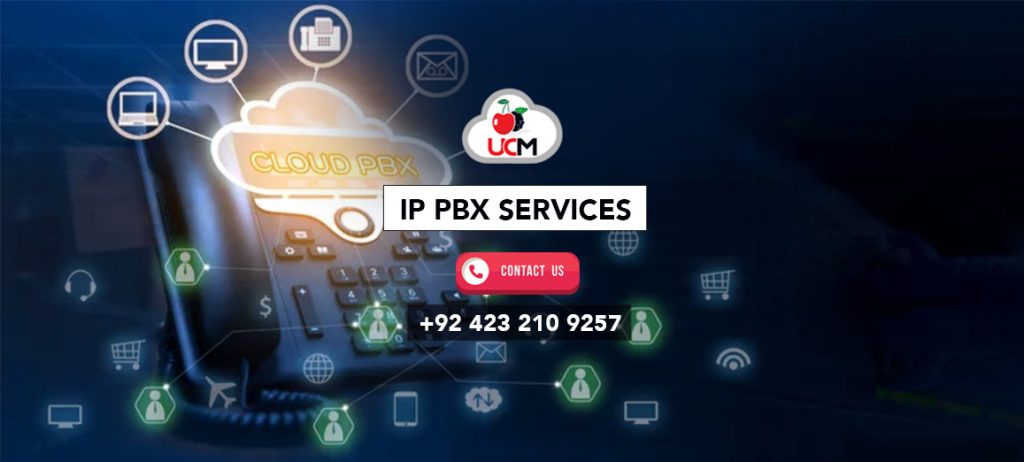How A Call Center Dialer Can Lower Your Agent Efforts?
Why Do Your Agents Need A Call Center Dialer?
Call centre agents are responsible for managing incoming and outgoing customer calls. The process requires continuous touch with customers to develop long-lasting relationships. They dial each phone to reach customers which takes time and energy. Meanwhile, there are also higher chances of mistakes while entering a phone number, making manual dialling counterproductive. What if a special spark in your call centre adds value to your business and boosts your agent performance? This is the convenience an iconic Call Center Dialer brings for your sales and marketing teams to turn every campaign into a successful venture.
Understanding The Importance of Call Center Dialer
This tool automates the entire process of dialling phone numbers in a call centre. It automatically dials the numbers from the provided list for your sales and marketing teams. An outbound or autodialer connects the connected calls to the IVR system or a live representative. It increases the call connect rate and agent talk time. In addition, the right dialer software brings more convenience than just automatic dialling. For instance, it adds intelligence to your outbound calling processes while analytical insights improve your call centre efficiency and agent performance.
What are the Important Uses of Call Centre Dialers?
Some people consider calling centres as hubs for providing customer service. However, they are also important for generating revenue and other important business operations. Let’s explore some important uses of auto-dialers.
1. Lead Generation
In today’s digital age where call centres offer multichannel communication to customers, phone calls are still considered an effective channel for sales development and lead generation. The more leads your sales reps reach shortly, the higher the lead generation rate of your call centre.
2. Up-Selling & Cross-Selling
Integration of CRM with a dialer helps to identify qualifying leads, nurture them and close deals faster. It further enables your agents to be involved in contextual conversations through available customer data. They can update information in real time to expedite conversions.
3. Promotions & Surveys
Every business must promote its brand, products and offerings to existing and new customers to increase sales and profits. They also need feedback to improve the quality of services. A reliable dialer empowers agents to reach maximum customers quickly and efficiently.
4. Debt Collection & Customer Service
Debt collection services can manage and monitor collections effortlessly with power and progressive dialers. In addition, sales representatives in customer service can handle complaints and complex inquiries through preview dialers that provide all necessary information at their fingertips.
5. Appointment Scheduling & Reminder
Service-oriented sectors can utilise the potential of power dialers to schedule appointments and reminders using dialling solutions. This way, your agents can efficiently reschedule appointments to avoid no-shows.
Which Dialer Features Improve Your Team’s Productivity?
1. Live Coaching & Call Whispering
This is one of the most interesting features of Call Center Dialer which allows your supervisors and managers to join the conversation between agent and prospect discreetly without knowing the prospect. It is helpful during complex interactions where admin staff can join agents and whisper to improve the quality of interaction.
2. Warm Calling & Transfer
Your sales and marketing teams can quickly reach prospects who have previously shown interest in your business products. Moreover, the warm transfer option allows talking with your fellow agents before transferring a call.
3. CRM Integration
Call centres can improve their team performance with CRM integrations. Your sales and marketing teams can use customer and prospect information to offer personalised interactions and convert them into loyal and paying customers.
4. Callback Scheduling
Whenever your agents cannot connect prospects on the first attempt, they can connect them again to complete their telemarketing campaign through a callback scheduling tool.
5. Unproductive Number Detection
The latest dialer can differentiate between a voicemail and a human voice. They skip such calls and connect agents with those calls attended by humans. This speeds up the call connection rate and increases agent efficiency.
6. Skilled-Based Routing
Automatic call routing saves time for both callers and agents. The calling system routes calls to the most helpful and available agent to avoid call transfers to various departments and agents.
7. Call Recording
Cloud-based auto-dialers are becoming the norm today. They allow the administration to monitor and record every outgoing call in real time. They can view these saved files later in the cloud to evaluate their call centre and agent performance.
8. List Filtering
Auto dialers can screen and exclude numbers through do-not-call (DNC) and do-no-disturb (DND) tools so you can connect only those prospects interested in converting.
How Do Dialing Systems Ensure Operational Excellence? The Benefits
1. Improves Operational Efficiency
An outbound dialer means no more manual dialling. These dialers reduce the likelihood of misdialing, call drops and excessive wait time enhancing operational efficiency. Auto dialers ensure only connected calls are routed to sales and marketing agents. They can detect voicemails, busy tones and unproductive numbers improving call connect rate. More connected calls means enhanced agent productivity and operational excellence.
2. Reduce Wait Times
In manual dialling, your agents experience busy tones, answering machines, voicemails and disconnected calls. It increases their idle time and reduces performance. The advanced dialer technology can identify and skip these elements. It ensures that only answered calls are routed to the most available agents so they can attend more outbound calls per hour.
3. Increases Agent Talk Time
Auto dialer systems improve agent talk time by eliminating idle time wasted on manual dialling and experiencing unproductive numbers. Your sales and marketing agents can spend more time talking to prospects on call to boost conversion rate. This will eventually lead to better customer engagement and enhance sales and productivity.
4. Boost Conversion Rate
Implementing a dialer system for complex sales interactions with high-value leads brings agility to your outbound calling process. These dialers offer a quick preview of contact information to let agents prepare for the interaction. In addition, they can ensure personalised conversations through prior contact information and increase the chances of lead conversion.
5. Allow Monitoring & Reporting
A dialling system provides real-time insights about your agent activities and call centre operations. Real-time reports and dashboards improve call centre performance and decision-making ability. This is because the administration can identify problems earliest before they make a big issue. They can view call recordings to improve quality and higher operational efficiency.
Closing Thoughts
Indeed, the main purpose of a call centre dialer is to eliminate the need for agents to spend idle and pointless time dialling numbers for each call. Instead, they can focus on core business competencies and increase conversions through personalised conversations. This technology is best in service-oriented work settings that involve repetitive phone conversations like hospitality, healthcare, call centres, tourism, debt collections and more. If you are searching for a reliable automated dialer to lower your agent burden and increase operational excellence, don’t hesitate to contact CherryBerry UCM for expert assistance.
How is Auto Dialer System a Top Choice for Your Business Today?
How Can an Auto Dialer System Boost Sales Call Conversion?
While running an outbound calling campaign, your main task is to make the most out of every lead to increase conversion. However, when your sales and marketing teams personally go through a contact list following a manual dialling approach, it becomes challenging to achieve their desired campaign goals due to experiencing busy tones, unproductive numbers, and answering machines. Suppose an advanced tool enables you to reach more leads shortly and optimise your outreach efforts. This is the convenience, and advanced Auto Dialer System offers, empowering companies to increase call connect rates and scale outbound call centre operations at a minimal cost.
What is an Outbound Automated Dialing System?
Auto-dialling systems can be described as software solutions that automate the dialling process of cold sales calls following predefined rules. It also means that your agents don’t have to manually dial or look up phone numbers or source customer information. These systems reduce the need for manual dialling and expedite the dialling process to help your sales and marketing teams make outbound calls more efficiently and boost conversion rate. Your teams can spend more time providing high-quality customer experience and conversions instead of wasting time on these productivity-draining processes. Shortly, the advancements in auto-dialers have made them the cornerstone of modern sales strategies.
Which Type of Outbound Dialer Software Best Suits a Business’s Needs?
Different outbound automated dialers are designed to achieve the same end goal: automating the dialling process. This is why, before selecting an outbound dialer system, it is essential to consider the types of dialling modes to choose the best one that suits your unique business needs.
1. Power Dialers
These dialling systems dial numbers in sequence, if there is no answer, they automatically move to the next number in the list. In addition, when your agent ends a call, the system automatically places the call to the next contact. Moreover, this team makes the outbound calling process easier and faster and your teams can reach more prospects and leads, especially in the finance and real-estate sectors.
2. Preview Dialers
Though these dialers also dial numbers from contact lists sequentially, like power dialers, they also show relevant customer information to agents. This information includes contact name, past interactions or other relevant insight of the caller. It allows agents to prepare for the interactions before connecting to the call. The dialer connects the call only when the agent changes their status to ‘available.’ Agents can also skip calls considering contact information.
3. Predictive Dialers
They are the most intelligent dialling solution to detect voicemails or busy signals through machine learning and artificial intelligence. The system routes only the connected call to available agents, saving them idle time. Call centres can handle high call volume which improves agent productivity. However, the system generates more live calls than available sales reps, so when customers find nobody online, they hang up calls that increase call abandonment rate. They are best for high-volume call centres.
What are the Important Features of the Auto Dialer System?
1. Predictive Dialling
This feature allows sales agents to predict the availability of contact to answer calls based on time zone or historical call data. It reduces idle time between calls and increases agent performance and efficiency.
2. Call Routing
Auto-dialling systems follow predefined criteria like language proficiency, skill set and geographic location to direct calls to the most suitable agent or department. Almost all automated dialers contain call routing features to provide the best possible service to their customers.
3. Answer Machine Detection
Busy tones, unproductive numbers and answering machine detection enhance agent performance by delivering more live callers. This feature can identify voicemails and live people. Thus, it connects agents only to those calls attended by humans that boost call connect rates.
4. List & Lead Management
Call centres can set rules to reach leads and prospects effectively. For instance, many auto-dialling solutions allow filtering the most qualified leads and automating follow-ups with prospects. Likewise, if your outbound campaign goals have been achieved, the system will skip these numbers.
5. CRM Integration
Outbound dialers can give your sales reps access to important customer data and call history when integrated with CRM. Additionally, they can use this data to manage complex interactions skillfully and offer more personalised service.
6. Callback Scheduling
Sometimes, your sales reps cannot connect with a customer on the first attempt, and they have to contact the person again to complete their telemarketing campaign. Your teams can reconnect callers using callback features available in cloud-hosted dialers to enhance telemarketing efforts.
7. Call Whispering
Administration and supervisors can listen to live conversations between agents and prospects. They can whisper during calls to guide agents to make complex interactions successful without knowing callers.
Top Advantages of Auto Dialers for Your Business
1. Improves Agent Performance & Efficiency
Every second matters in successful call centres. Auto dialers save your agent time, allowing them to reach maximum prospects and lead to close more deals. Moreover, they connect sales reps with potential leads on live calls much faster after filtering out unproductive numbers and busy signals. Consequently, it increases your sales and marketing teams’ efficiency by reducing time spent on manual dialling and experiencing no-response numbers.
2. Increases Response Rate & Conversions
Automation of the dialling process enables your sales representatives to reach maximum leads in a short time. As the Auto Dialer System automatically filters out unproductive numbers, answering machines, and voicemails, it connects the live person to agents, increasing the conversion rate and response time. Call centres can also automate callbacks based on customer preferences to increase response rates. This way, your sales reps can focus on more promising opportunities.
3. Allow Efficient Campaign Management
Companies can manage contact lists and formulate campaign strategies more effectively with outbound dialers. They can segment contact lists based on demographics, preferences or behaviour and automate their campaign workflow. As a result, your sales and marketing teams can focus on core aspects of business or converting prospects into paying customers.
4. Enhances Customer Engagement
Automated dialers enable agents to spend more time convincing and building relationships with leads and prospects. Call recording and CRM integration encourage personalised interactions and improve the quality of customer service. It further increases customer satisfaction levels and retention rates.
5. Increases Operational Efficiency
Automation of dialling processes reduces the likelihood of human errors and ensures precise call centre operation management. Meanwhile, these dialling solutions are highly flexible and scalable and support expansion and growth.
Wrapping Up
By now, it is no more surprising why modern businesses value auto-dialers so highly. The main goal of outbound calling campaigns is to increase conversions and keep existing customers engaged. An Auto Dialer System can help your sales, support and marketing teams reach their outbound campaign goals efficiently through automated solutions. However, more than having a dialling system for outbound calling is required. You need to invest in the best dialling software to get the most out of your efforts. Contact CherryBerry UCM professionals for expert assistance to boost conversion and sales.
Why is IVR Call Center Software Essential for Modern Businesses?
How Does IVR Call Center Software Improve Customer Support Operations?
Many callers feel stressed calling a business due to the likelihood of long queues, frustrating holds and closed business hours. Sometimes, even the well-staffed call centres become overburdened and maintaining customer satisfaction seems challenging. Thankfully, IVR Call Center Software has eliminated many such grievances empowering businesses to provide a streamlined and personalised customer service experience even at times of high call volume. Of course, virtual receptionists or recordings cannot handle every issue, but IVR technology identifies the caller’s need and connects them to the most relevant agent to resolve their queries.
Understanding What IVR Call Center Software is
This automated telephony technology acts like a digital/virtual recipient interacting with callers through touch-tone input. Callers can self-service by navigating through a digital menu to find the information required to resolve their complaints or requests to reduce wait time or opt for connecting with a live agent. IVR systems also notify customers about estimated wait times, and positions in queues and provide them with a callback option for enhanced customer experience. In addition, the system collects caller information, understands the reason for the call and directs them to the most suitable agent. This facility keeps your business open round the clock, lowers agent burden and keeps customers satisfied.
How IVR Technology Works?
You may have the experience of interacting with a pre-recorded digital voice greeting you and presenting a menu containing options to follow whenever you call a business number. This is the first step of IVR (interactive voice response) technology. Inbound callers encounter menu options in two ways: dual-tone multi-frequency (DTMF) signalling that route calls following dial pad inputs. The other one directs callers to suitable menu options through speech recognition. This way, your agents don’t have to manage repetitive requests and you can keep customers satisfied without connecting them to live human operators.
Which Features of Cloud-Based IVR Software Add Value to Your Business?
1. Customised Greetings
This feature lets companies record greetings and messages best represent their brand or product image. It ultimately increases your company’s reputation.
2. Caller Information
IVR systems can collect caller information automatically to understand the needs of callers. The system uses this information to provide them with personalised service.
3. Automated Customer Service
The digital recipient enables callers to resolve their simple problems by following voice commands to avoid long holds and wait times. They can resolve queries like order status and online registration during off-hours without speaking to the actual agents.
4. Call Routing
IVR systems automatically route calls to specific agents or departments considering their keypad input to resolve complex issues and complaints.
5. Call Prioritization
This technology collects information based on customer selection of voice menus. The system delivers it to call distribution systems that further offer skilled-based routing and prioritise highly important calls.
6. IVR Callback
The incoming callers who do not want to wait in queues can request a callback. They will receive a call from the live agent later to keep your customer satisfied.
7. Text-to-Speech
Cloud-based IVR Call Center Software can convert text to speech to provide an excellent customer service experience. It is highly suitable for online stores, banks, taxi services and more.
8. Detailed Reporting
IVR software allows companies to evaluate menu options to analyse the level of convenience. They can update the menu design to enhance the quality of service and improve customer satisfaction.
9. Multi-Language Support
These systems provide support in multiple languages. Your customers can choose their desired language to resolve their issues and complaints conveniently.
What are the Advantages of Cloud IVR Call Centre Software?
1. Improves First Call Resolution
Companies can increase their first call resolution rate by investing in IVR technology. When a customer places a call, the system first gives them the choice to self-service to avoid wait times or direct them to the most qualified department or agent. The access to qualified agents eliminates the likelihood of transferring calls to other agents.
2. Increase Quality of Customer Service
Your agents can be overburdened with high call volume but IVR systems enable them to resolve customer issues quickly. When customers manage their simple queries through IVR, only those having complex and technical issues move to agents. It increases the quality of customer service.
3. Lower Operational Costs
Earlier, companies had to hire extra agents to manage high call volume. However, IVR systems emerge as a game-changing technology that reduces operational costs, enhances efficiency and keeps customers happy and satisfied.
4. Increase Professional Image
When your customers are greeted in a professional voice, they feel valued and consider your brand as a professional one. This sense of professionalism keeps your customers intact with your business and attracts more. In addition, when customers get instant responses to their issues, they value your business.
5. Enhances Customer Satisfaction
The IVR system is quite easy to use and manage. It ensures that your customers are always routed to the right department or to agents capable of resolving their issues. Moreover, the system contains clear voice prompts that help to clear things up for customers.
6. Provide Greater Efficiency
Companies can manage inbound calls with automated systems efficiently without missing sales opportunities. Your teams can manage more calls in a short time. You can provide a better perception of your business by customising the system based on your business offerings and customer needs.
Which Latest Trends to Expect in IVR Technology?
Incorporating artificial intelligence and machine learning in advanced IVR software improves voice recognition while predictive analytics ensure personalised interactions. The latest innovations in natural language processing have made IVR software more intuitive and conversational for natural customer interaction. Meanwhile, IVR system integration with other communication platforms is also becoming a popular trend to provide seamless customer service. Particularly, cloud-based IVR systems are becoming the norm and the first choice of businesses of all sizes due to ease of access and setup. They are expected to become more sophisticated, scalable, reliable and flexible in the future.
Closing Thoughts
Indeed, IVR Call centre Software is handy during high call volume and is a breeze for your overwhelmed and overburdened agents. The advanced features of this technology add value and professionalism to your business and keep customers satisfied. In addition, the enhanced first-call resolution rate increases your operational efficiency. From customer service improvement to increasing first-call resolution, IVR systems give your business the boost required to outshine competitors. If you want to elevate your customer service experience to new heights, reach out to us at CherryBerry UCM for expert assistance and achieve next-level efficiency.
How Cloud Call Center Solutions Revolutionise Customer Service?
Why Do You Need Cloud Call Center Solutions?
The key aim of every call centre is to keep customers happy and satisfied. However, if you provide your agents with the right tools for efficient workflow, you outshine the competitors. Moving to the Cloud Call Center Solutions brings limitless opportunities for your business, empowering your teams to achieve business communication goals effortlessly and serve their customers best when they need you. Meanwhile, the facility to communicate across multiple communication channels promotes seamless interactions and increases customer satisfaction. Cloud solutions have revolutionised how businesses manage call centre operations and customer interactions.
Understanding the Importance of Cloud Solutions
This virtual hub operates online to manage customer support and service operations. It also allows your customer support teams to manage various forms of communication virtually from any location through internet-connected devices. Moreover, these solutions are easy to set up and maintain as they do not require costly infrastructure, complex installations or maintenance. Your cloud service provider manages upgrades and maintenance, allowing teams and administration time to spend on core business competencies. Supervisors and managers can track critical metrics and team performance to enhance end-customer satisfaction.
Which Types of Cloud Solutions are Suitable For Your Business?
1. Inbound Solutions
These solutions streamline the process of your inbound customer calls. Meanwhile, features like skilled-based routing connect callers with the most suitable agents capable of resolving customer queries in the best possible way. In addition, interactive voice response, automatic call distributor, queue call back, and intelligent call routing can also increase your inbound agent’s performance. Thus, companies of all sizes that want to elevate their customer service can invest in inbound solutions for enhanced efficiency.
2. Outbound Solutions
Call centres can automate their sales and marketing processes by investing in outbound solutions designed specifically to enhance the performance of their outbound campaigns. For instance, many auto-dialers, such as Predictive, Preview, and Power dialers, enable call centres to run agentless campaigns for product promotions, order confirmations, debt collection, and customer surveys. Outbound solutions automate dialling processes and allow agents to boost conversions by offering personalised services.
3. Blended Solutions & Multichannel Communication
General call centre software contains features that support both inbound and outbound calling processes. It reduces your agents’ idle time, enabling them to manage call volume spikes efficiently. Thus, it is the best option for call centres that deal with both inbound and outbound call processes. Moreover, this comprehensive solution also facilitates multichannel communication for an outstanding customer experience.
Which Features Constitute Call Centre Software?
1. Automatic Call Distribution
This fundamental feature of cloud software automatically routes incoming calls to the most qualified agents, considering pre-defined criteria such as availability, skills, and priority. Your customers connect with the right agents quickly, improving the first-call resolution rate and reducing wait time.
2. Multichannel Support
Advanced Cloud Call Center Solutions provides multichannel communication, such as email, social media, live chat, etc., in addition to voice calls. This facility enables your customers to reach your business in their preferred mode of communication, improving convenience and satisfaction. Moreover, your customer support teams can easily switch between different communication channels.
3. Interactive Voice Response
Through IVR technology, callers can interact with the digital menu through keypad inputs to self-service. This way, they can resolve simple queries like balance inquiries or order status without waiting in long queues. In case of complex issues, they can route them to the appropriate department/agent to get expert solutions.
4. Analytics & Reporting
Monitoring your teams and call centre performance to explore the latest trends and make informed decisions is essential. Cloud-based solutions allow call centres to access and track key metrics in real-time. For instance, they can monitor call volume, first call resolution rate, and agent performance to improve and address coaching needs.
5. CRM Integration
Integrating CRM software with call centre software enhances the value of your customer service operations. Your customer support and service teams can easily access customer information and historical data of previous interactions to offer personalised interactions and enhance efficiency.
6. Auto Dialers
Advanced dialers automate various aspects of your outbound calling campaigns. For instance, a predictive dialer can determine the agent’s availability for the call, increasing lead generation and conversions. Likewise, preview dialers provide agents with an overview of caller information to get them well-prepared for the interaction.
Top Benefits of Cloud Software For Call Centres
1. Support Remote Working
Cloud solutions allow your remote teams to work globally in the office or on the go through internet-connected devices. Virtual desktops and softphone integration ensure that your remote teams can efficiently communicate with in-house teams, allowing them to stay on the same page about customer service and business growth.
2. Faster Resolution & Response Time
Customers want immediate resolution of their issues and complaints. They hate waiting on long holds and get frustrated. Cloud-based call centre solutions contain valuable features like auto-callback, ACD or call routing that streamline call management even during peak hours.
3. Less Expensive Solutions
Businesses must spend significant costs on infrastructure and maintenance. However, they can control their budgets by investing in the right cloud-based call centre solution that aligns with their business goals.
4. Provide Scalability & Flexibility
Your call centre and customer needs increase over time. This is why you should choose the cloud solution that scales up or down with your fluctuating needs. Advanced call centre solutions provide the scalability and flexibility needed to grow your business.
5. Negligible Maintenance Requires
On-premises solutions need frequent maintenance and upgrades from the service providers and in-house IT professionals. You do not have to experience such hassle in the latest cloud systems. Your cloud vendor is responsible for service upgrades, maintenance and security updates. Moreover, it is easier to deploy than on-premises solutions.
6. Elevate Customer Service Experience
Cloud software gives call centre options to record calls and monitor live calls. They can track their agent performance, first-call resolution and abandonment rate, call volume, and more. These insights help them make informed decisions, while innovative workload distribution enhances agents’ performance. Ultimately, all this contributes to improving customer loyalty and satisfaction.
Key Takeaways
Indeed, efficient inbound and outbound call process management is crucial to keep your customer satisfied and happy. However, this is only possible when your teams have the tools and advanced technology to provide heightened customer service. Cloud Call Center Solutions contains advanced features that make your customer service, support, sales and marketing teams more productive. Still, you require expert assistance to choose the right solution for your business to meet dynamic customer needs. If you are ready to transform your call centre operations on modern lines, don’t hesitate to contact CherryBerry UCM today for uninterrupted customer service.
Can Inbound Call Centre Service Providers Transform Interactions?
How Does an Inbound Call Center Service Provider Help Your Business Grow?
Today, the level of customer support influences your customer’s buying decisions. Meanwhile, the rapid increase in competitors has made it critical for companies to provide superior customer service and achieve the challenge of keeping existing customers successfully. However, the lack of in-house expertise and a high influx of incoming calls can affect the performance of your customer support agents. You can outsource your customer support and service operations to an expert Inbound Call Center Service Provider to manage the high volume of incoming calls effortlessly, enabling customers to reach you conveniently.
Understanding the Importance of Inbound Call Centres
When customers place calls to a business through any communication channel, this refers to an inbound call. Specialised inbound services manage customer support operations on your business’s behalf to keep your customers satisfied and loyal. Earlier, call centres allowed communication only through voice calls, now the trend has changed with heightened customer expectations. Call centres offer communication through multiple communication channels today for a competitive edge. Outsource your business inbound call processes to reliable service to reduce operational costs and enhance the quality of service.
The Difference Between Inbound vs. Outbound Call Centre Services
1. Call Initiation
Generally, inbound agents manage incoming customer calls initiated to resolve customer service issues like service upgrades or renewals, service inquiries, complaints, etc. Meanwhile, sales and marketing teams in outbound call centres make sales calls to prospects, which leads to more revenue for the business.
2. Objectives
The key objective of inbound call centres is customer satisfaction by resolving customer inquiries instantly. Conversely, outbound call centre agents promote their offerings and maximise conversion by reaching as many leads as possible.
3. Services
Inbound services handle customer service, technical assistance, order processing, upgrades and renewals. However, outbound agents invest their time in market research, lead generation, telemarketing, appointment scheduling and feedback collection.
4. Nature of Interaction
In inbound call centres, customer service agents handle complaints, inquiries and technical issues. Meanwhile, outbound sales and marketing teams approach leads and prospects for sales purposes. Thus, outbound call centres are proactive, while inbound services are reactive.
How Does An Inbound Call Center Service Provider Elevate Customer Service Experience: Benefits
1. Enhances Customer Satisfaction
Specialised inbound call centre services ensure timely resolution and response to queries and issues. This increases the first-call resolution and customer satisfaction rate. These services allow customers to interact in their preferred communication channel to keep them engaged. When a dedicated team of qualified agents handles your customer inquiries, it improves the quality of service.
2. Manage High Call Volume Efficiently
It is quite easy to manage customer inquiries for startups and small businesses. However, when a company evolves, its call volume increases, and your agents get overwhelmed with the workload. When they cannot respond to customers timely, this may cause abandonment and frustration. An Inbound Call centre Service Provider has access to the latest tools and advanced technology like IVR and ACD that enhance the efficiency of their skilled agents. This ends in streamlining high call volume.
3. Improves Your Business Reputation
Customers are valuable assets of your business that expect immediate resolution of customer support issues. Failing to respond can push them to your competitors. Inbound services have proven methodologies and seasoned resources that expedite the process of resolving customer queries. The high rate of first-call resolution increases your business reputation and gives your business a competitive edge.
4. Low-Cost Solution
Companies can lower their operational costs by investing in inbound services. They may have to invest in infrastructure, agent training and equipment purchases to develop an in-house setup. Inbound services have already developed infrastructure and professional teams that improve customer retention and increase loyalty, saving costs.
5. Elevate Business Performance
Access to advanced technology and features like call queuing, auto-attendants, and call routing enhance the quality of customer service. Automatic call management enables your in-house teams to focus on core competencies, increasing productivity and efficiency.
Which Key Features of Inbound Software Add Value to Your Business?
Inbound call centre software contains many useful features to improve the quality of customer service and agent performance. However, they differ from one provider to another. Let’s learn about some important features.
1. ACD System
Automatic call distribution systems direct incoming customer calls to the most appropriate department or sales agent following caller information. Call centres can set criteria like location, skills and business hours to route calls to the most suitable agent. This increases the first call resolution rate and your customer satisfaction.
2. Whisper Coaching
This feature enables supervisors to barge into ongoing calls and provide silent guidance to their agents wherever required. It is helpful during complex interactions and increases call centre productivity.
3. Call Queuing
Call centre software also offers a queuing facility for incoming calls and informs callers about the expected wait time. Companies can keep their callers engaged through on-hold promotional messages or music.
4. Voicemail
Another notable feature of inbound software is voicemail to avoid long holds. Customers can send voice notes and request a call back without waiting in queues. It helps businesses to manage high call volume without upgrading infrastructure or recruiting extra agents.
5. Interactive Voice Response
This telephony feature navigates callers to a digital menu so they can solve their basic inquiries themselves by following commands. They can easily get product information and order status without agent interference. Moreover, they can get live assistance in case of complex queries by routing themselves to available agents.
6. Reporting & Analytics
Companies can easily monitor their business operational performance and quality of services by analysing reports. They can get insights like call abandonment rate, average wait time and agent performance. This data can further be used to make informed decisions and coaching purposes.
Closing Thoughts
Indeed, the quality of customer service impacts your business reputation, retention rate, conversion and efficiency. This is why providing a top-tier customer service experience to your customers they expect from your business is necessary. Choosing the right Inbound Call Center Service Provider can give your customer support the boost required to outshine competitors. From enhancing customer satisfaction to improving customer loyalty, inbound services provide the scalability and flexibility you need to grow your business. Ready to meet heightened customer expectations? Reach us at CherryBerry UCM for expert assistance to offer next-level customer service experience.
Reasons Why Choosing A VoIP Provider For Call Center Matters
Why A VoIP Provider For Call Center is Important?
Today, running a call centre can be a challenging feat to achieve. You may employ dozens of agents working in shifts and managing several customers simultaneously. However, suppose your sales and marketing teams do not have the necessary tools to run the process smoothly and collaborate or still depend on long reigned landline phones. In that case, you are falling behind the competitive curve losing money and customers. Considering these reasons, many companies prefer to choose a VoIP Provider For Call Center to streamline their business communication on modern lines, get the required communication tools to enhance efficiency and keep daily operations fully functional.
Understanding The Significance & Need of VoIP Technology
You may have used Zoom, Messenger or Skype, a type of VoIP technology. However, these internet-based phone systems are no longer limited to meetings or personal calls. Companies are adopting VoIP phone systems increasingly thanks to expanded functionality and easy installation and setup procedures. This modern communication system relies on the Internet to make and receive calls. You can initiate and receive calls through a strong internet connection, and an internet-connected device. The latest solutions are more cost-efficient and reliable than their predecessors.
Do VoIP-Based Contact & Call Centres Offer the Same Functionality?
Generally, a customer service VoIP-based call centre allows communication through only voice calls. Conversely, contact centres provide added features more than just phone calls. These include communication through email, texts, social media and live chat. In addition, VoIP call centres and contact centre operations can be different departments in a company or operations outsourced to other companies. As VoIP contact centres offer multiple ways of communication therefore many companies are switching to these service providers to meet their customer’s expectations.
How Does VoIP System Work?
This system empowers companies to make voice calls over a broadband connection. Firstly, the VoIP-enabled device, a tablet, smartphone or PC connects with the Internet. When a user dials a phone number, the analogue voice signals are sent to A VoIP Provider For Call Center. These service providers convert audio signals into digital ones and transmit these voice packets through secure real-time transport protocol to ensure security. VoIP setups are quite easy to install for small businesses. They can even use their headsets and need adapters to link phones with PCs and software to connect calls.
Which VoIP Features Make Communication Easier?
- Custom Voicemail: Companies can personalise their greetings with tailored messages to make callers feel valued and make business accessible anytime, anywhere.
- Live Call Conferencing: Your teams can seamlessly collaborate or engage multiple callers in real-time conversations through video and audio conference calling.
- Advanced Call Routing: Agents can optimise call flow by routing incoming calls to specific departments, agents or locations that increase efficiency and customer satisfaction.
- Business Hours Setting: Companies can define their operational hours to manage calls automatically. It helps to maintain your business’s professional image.
- IVR: You can engage your callers during peak, busy or close hours through automated menus that guide them to relevant information or departments for resolution of issues.
- Unlimited Extensions: The latest VoIP solutions allow you to expand your communication network without limits by adding extensions.
- Call Blocking & Caller Blacklisting: Companies can protect their communication set-up by detecting unwanted calls increasing security and reducing disruptions.
- Active Call Monitoring: The call centre can stay informed about the real-time insights of ongoing calls. Supervisors can observe and analyse conversations for quality control and training purposes.
- Call Whispering: This feature allows supervisors and managers to offer guidance to their teams during live calls without knowing the caller. It increases the quality of customer service during complex interactions.
Exploring the Role of A VoIP Provider for Call Center
They empower businesses to make and receive calls over the Internet easily. Complex algorithms and servers automatically route incoming calls using the internet to business phone systems. Your VoIP service provider is responsible for providing all infrastructure and they manage updates and maintenance themselves. As this technology is more than voice calls, service providers offer a complete business toolbox to meet all businesses’ communication needs. They help companies to integrate their existing software and tools with VoIP for enhanced efficiency. Indeed, they have become a technical part of your business.
How is Collaboration with a VoIP Provider For Call Center Beneficial for Your Business?
1. A Less Expensive Option
VoIP providers have the latest tools and technologies as well as an already-developed infrastructure. They offer cost-efficient solutions for your business that require lower setup costs and call rates. This way call centres can allocate their resources and teams more efficiently maximising ROI.
2. Highly Scalable Solution
VoIP solutions are highly scalable so call centres can adjust their capacity considering their fluctuating needs. Moreover, they can easily meet changing customer demands without investing in costly hardware and upgrades.
3. Allow Remote Accessibility
VoIP phones facilitate remote working so you can expand your teams globally. Your teams can work whenever, and wherever needed with an internet connection and communicate with each other seamlessly. It reduces overhead business costs associated with maintaining the in-house physical infrastructure necessary in traditional systems.
4. Facilitate Business Continuity
VoIP providers ensure their clients receive uninterrupted service and continue their business operations without disruption. Even in the case of a disaster, companies can stay online to meet their customers’ needs and keep them satisfied.
5. Provide Actionable Insights
VoIP systems keep robust analytics and reporting capabilities that provide valuable insights about your customer behaviour and performance metrics of call centres. Call centres can use this data for strategic decision-making and boost performance.
6. Offer Reliable Support
Another compelling reason to join hands with VoIP providers is their continuous and reliable support. They have dedicated support teams that help call centres with maintenance, implementation and troubleshooting issues. This facility streamlines your communication operations and brings peace of mind to businesses because you don’t have to tackle technicalities, upgrades or complex installations.
Final Thoughts
Although landline phone systems have reigned for decades as the main communication service, modern businesses are moving to the latest VoIP solutions. They are getting popular due to lower costs, flexibility and scalability, advanced features and actionable data insights that make your teams more productive and motivated. However, companies need phone systems that align with their unique business needs. A specialised VoIP Provider for a Call Center like CherryBerry UCM offers everything you need to provide exceptional customer service. Contact our experts to know everything you can do to take your business communication to the next level.
Web Based CRM: The Best Choice for Stronger Connections
Why is Web Based CRM the First Choice for Companies Today?
Companies always look for innovative ways to streamline business operations, improve customer interactions and drive growth. An effective way to transform your business and customer relationships is Web Based CRM software. Though traditional CRM software has been quite popular, accessibility and on-premises installation issues have paved the way for online and cloud-based alternatives. The latest systems offer the flexibility to grow and allow seamless and secure customer relationship management with an active Internet connection. This move keeps companies agile, responsive and competitive. Let’s delve deep into the benefits and differences between traditional and online CRM technology.
Understanding the Basics of Online CRM Systems
Online, cloud or web-based CRM systems allow companies to organise and maintain customer data without complex installations to foster long-lasting business relationships. One important characteristic of the latest technology is its accessibility through internet-connected devices. Meanwhile, the core features and functionalities streamline customer relationship management and promote a collaborative business environment. In addition, access to centralised customer information databases enables companies to track and manage business interactions at various touch points effectively. Likewise, automation of email campaigns, lead scoring and task reminders also improves efficiency while analytics and reporting tools promote informed and strategic decision-making.
Navigating to Goal-Oriented CRM Technology
The ease of use and accessibility of online CRM software have made this technology popular among businesses enabling them to integrate their systems easily without specialised IT support and complex installation. Your marketing, customer service, project management and sales pipeline management teams can use CRM systems to achieve their targets. However, you should choose the CRM systems that align with your business goals. Let’s explore different CRMs and their significance for your business.
1. Operational CRM
These CRM simplify the execution of sales, marketing and customer service processes. They are designed to improve customer retention and acquisition so your teams can easily generate new leads, nurture or convert them and retain them by providing superior customer service. This system is suitable for all sizes of businesses and automates various aspects of sales and marketing processes like follow-ups and tracking touchpoints.
2. Analytical CRM
An operational CRM streamlines the process of getting leads into the sales funnel, analytical systems empower your teams to learn how leads are moving in the sales funnel. These systems can capture, store and analyse customer data so you can evaluate the efficiency of your sales, marketing and customer service efforts and adjust your business strategies using these insights. The performance reports like customer satisfaction scores and sales history help you identify areas that need improvement.
3. Collaborative or Strategic CRM
The main goal of this CRM is to promote collaboration among your teams and departments to enhance customer service experiences. When your sales, marketing and customer service teams are on the same page about customers, they can resolve issues efficiently and quickly. Meanwhile, strategic CRM systems work similarly to collaborative CRM but function differently. Collaborative CRM concentrates on quick improvements but strategic systems focus on long-term engagements to support retention and loyalty.
On-Premises vs. Online CRM: Which is Best & Why?
Traditional on-premises CRM has been there for a long wherein businesses host and operate networks and servers containing customer databases. Besides infrastructure, companies pay for and manage all resources required to run on-premises systems. These include a dedicated IT team to maintain the CRM system and other upfront costs. Conversely, service providers manage all these infrastructure costs in cloud or Web Based CRM. In this setup, companies do not have to invest in upfront costs to host and manage the entire service because service providers are responsible for maintenance, updates and security making it the best choice for companies.
How Web Based CRM Can Streamline Business Communication? Astounding Benefits
1. Ease of Access Through Any Internet-Enabled Device
Your CRM data is only effective when updated with the customer’s latest information. However, remote working and a dispersed workforce have made sharing information difficult in traditional systems. Luckily, the latest online systems allow users to access and upload the latest information easily through any internet-connected device. This keeps your workforce on the same page and promotes team collaboration.
2. Eliminate Hardware Requirements
As web-based CRM depends on cloud technology, they do not need hardware or software licenses. It saves significant costs on installation, new equipment and support solutions. Moreover, companies with limited IT skills can manage the system easily. On-premises solutions add inconvenience and costs for maintenance, implementation and support.
3. Allow Fast Implementation
Online cloud-based CRM does not require hardware so it is easily implemented and goes live. Moreover, you do not have to handle downtimes because you depend on service provider infrastructure other than the local system, which means fewer or negligible disruptions.
4. Real-Time Upgrades
In on-premises solutions, companies should have the latest software version which also needs continual upgradation. However, the latest software may not fit your hardware so you have to consider replacement. With a cloud-based solution, this is the responsibility of your service providers.
5. Cost-Efficient Solution
Online CRM systems are less expensive solutions than traditional on-premises solutions. Companies can reduce their upfront costs through this flexible and budget-friendly solution that is otherwise spent on infrastructure development, hardware purchase and training teams.
6. Facilitate Scalability & Flexibility
These systems are highly flexible and scalable. They can quickly adapt to your changing needs and scale with your fluctuating business needs. Their ability to scale up and down allows you to evolve and manage relationships efficiently.
How is Cloud CRM a Secure Option for Your Business?
cloud-based CRM has revolutionised the way businesses manage their relationships and business data. Another important perk of this technology is its ability to connect with other platforms effortlessly. In addition, you can consolidate customer data from various sources to get useful insights and offer personalised interactions. These systems provide robust security features to protect sensitive customer and business data. They keep valuable information secure through a secure authentication process, encryption protocols and backups. Your teams can use all functionalities securely from anywhere enhancing responsiveness, productivity and agility.
Final Thoughts
Embracing Web Based CRM keeps you ahead in industry trends while leveraging this innovative technology allows you to evolve with your growing business needs. This AI-driven solution enables companies to get insights about customer preferences, offer personalised services and develop long-lasting business relationships. CherryBerry UCM’s online CRM allows you to set targeted campaigns and stay engaged with your audience on their preferred communication channel. Reach us to acquire long-term success in your business relationships.
Deliver Superior Support with Outsourced Call Center Providers
Importance of Outsourced Call Center Providers
Managing customer support and service processes is more challenging than sound. It requires the keen involvement of business owners in factors that influence customer service operations for stable business growth. For instance, calls for support increase with your customer base growth. Meanwhile, keeping your valuable customers satisfied and adding new customers is also vital to increasing profit. However, some companies need more in-house expertise to manage all these processes flawlessly. That’s where Outsourced Call Center Providers come in as an effective solution to help you provide top-notch and next-level customer experience and keep your business running smoothly.
Understanding Outsourced Call Centres
When businesses hand over their customer service and support tasks to external service providers and teams to ensure a top-tier customer service experience, it is called outsourcing. These services can be located in your locality or working offshore managing customer support and outbound campaign processes on your business’s behalf. When an outside team or group manages all necessary operations, it frees up time for your customer service department. Companies can either outsource necessary tasks or hire service providers to take over everything about customer calls. This way, companies can allocate their resources efficiently and avail time to focus on core competencies like product development and other business operations.
Why Outsource Call Centre Operations?
Outsourcing is a popular business strategy globally that enables companies to focus on what they consider highly important and outsource other tasks to external teams. Many companies outsource call operations to reduce costs spent on in-house infrastructure management. Additionally, you can outsource your business operations to expand offerings to customers, grow your customer base, and decrease service downtimes. Outsourcing services also help you increase the quality of services and give your teams access to the latest tools and technologies. For instance, if you cannot provide live chat or social media services, you can hire an expert company to provide better service.
Which Type of Support Outsourced Call Center Providers Offer?
1. Inbound Call Centre Services
Specialised service providers handle incoming calls of a company on their behalf ensuring a comfortable customer service experience to keep customers satisfied. Customers initiate inbound calls for technical support, service upgrades or renewal, order processing, etc. They expect instant support from companies they are attached to. Missing a single call can push your customers to your competitors. Thus, by offering instant support through Outsourced Call Center Providers, they can raise customer satisfaction levels.
2. Outbound Call Centre Services
When sales and marketing teams initiate calls to prospects and leads to achieving their various business goals like lead generation, raising brand awareness, fundraising, telemarketing, or surveys, it is called an outbound call. Outsourcing companies also manage the outbound calling processes of your business to make your campaigns successful. These services have specialised professionals possessing the skills and knowledge to attract new customers leading to a high conversion rate.
3. Omnichannel Customer Support
Many outsourced services also assist in managing multichannel support. Their agents handle customer service and support on calls, chats, emails, and social media platforms. They are experts in managing every request or complaint to build a positive reputation for your business. Thus, you can get expert help to streamline your call center operations.
How Call Centre Outsourcing is Key to Success? Navigating to Top Benefits
1. It is a Cost-Efficient & Less Expensive Solution
When you manage all these operations yourself, the process requires significant costs in terms of office rent, infrastructure, technological setup, equipment purchases, maintenance, and hiring and training competent customer support agents. Outsourced service providers manage all your call-related operations which saves valuable time and money.
2. It Improves the Quality of Customer Service
Customers feel happy and satisfied when valued. They want instant responses to their queries and seek to get their issues resolved in the shortest possible time. Outsourced call center providers have dedicated teams that serve customers 24/7 in a polite tone that increases customer satisfaction and loyalty. This quality of services local businesses can hardly manage so it is wise to consider outsourcing.
3. It Gives You Access to Professional Service
Call centers consist of a network of trained professionals and experienced support staff acquainted with the necessary information to handle customer needs. They have the technical ability to improve customer relationships so they manage each query speedily increasing the call resolution rate. Moreover, access to advanced technology also contributes to an increased level of customer service.
4. It Increases Retention Rate
When you outsource your call operations, your company extends to a broader service that boosts lead generation and conversion. They use advanced technology to manage more customers in a short time, improving customer relationships and brand loyalty. You gain access to more qualified leads that increase the profit and sales.
5. It Offers Scalability & Flexibility
As your business expands or your customer base increases, the demand for customer service also increases. Necessary scalability often encompasses significant expenses. By outsourcing call operations, you can scale easily with your fluctuating needs saving your costs.
What’s More to Expect From Outsourcing Services?
6. It Streamlines Monitoring & Analysis
Monitoring and analytics are two important features of all call centers. Companies can analyze the performance of outsourced agents and guide them to improve their business image. Outsourcing services record customer calls to monitor performance which hiring companies can use to train their in-house teams. They can use this data to analyse customer trends and needs to improve the quality of services.
7. It Provides Access to Industry Knowledge
Outsourcing companies have professional and trained teams with specialised industry knowledge and skills. This further enables them to manage multiple campaigns easily. Many sectors like banking, insurance companies, debt collection institutes, real estate, restaurants, and tourism industries can get expert help to streamline customer service operations.
8. It Improves Customer Satisfaction & Business Reporting
Call Center services offer business communication across various platforms besides mere voice calling. These multi-channel platforms include live chat, text messaging, email, chatbots, social media and more. Managing communication at these platforms may be difficult to handle for your in-house teams. However, outsourcing services manage multichannel communication through the latest tools and technologies like CRM. In addition, these services provide their clients with real-time reporting to get them well-updated about their business performance.
Final Thoughts
Ultimately, Outsourced Call Center Providers are an efficient choice to provide top-tier customer service your valued customers expect and deserve. Collaborating with specialised outsourcing services like CherryBerry UCM also gives you a competitive edge and allows you to focus on core competencies contributing to your business success. From cost-efficiency to scalability, access to advanced solutions, or top-notch customer service, our services enhance customer satisfaction and increase sales. Contact us today to unlock new ways for business growth.
What are VoIP PBX Solutions? Features & Benefits Explained
Why Does Your Business Need VoIP PBX Solutions?
Today, increased product offerings and growing communication needs have made business operations more complex, leading to new management and communication challenges. Companies are looking for solutions that streamline business communication at minimal costs ensuring efficiency and reliability. This is where VoIP PBX Solutions comes in as a game-changing option that allows communication over internet connections replacing wired phone systems. The best part of these solutions is that they offer easy scalability and increased data security. Let’s dive deep into the important features of this technology and its benefits for your business.
Understanding VoIP-Based PBX Solutions
VoIP and PBX are business phone systems designed to achieve the same end goal, to initiate and receive business calls. The differences between these two terminologies lie in the way, they work and their pros and cons.
1. PBX Systems
PBX is a landline phone system that keeps all the office desk phones connected to make internal and external calls consisting of several useful features not available on traditional systems like IVR and call transfer. Though considered secure and reliable for high-quality calls, companies need significant setup and maintenance costs. An expert IT professional is also required to maintain and update the system.
2. VoIP Solutions
The term VoIP is a short form of voice-over-internet protocol. This system converts analogue calls into IP packets using internet technology and has evolved recently in phone systems. The good thing about the latest VoIP systems is that they are highly flexible, easily scalable and less expensive than traditional or on-premises PBX systems. However, internet disruptions or outages can affect the call quality so a strong internet is required to ensure quality sound during calls.
3. VoIP PBX Systems
Although VoIP-based phone systems work freely over the internet without PBX phone systems, they need active internet and phones to work. Service providers offer solutions for businesses that function without on-site PBX systems. Still, on-premises VoIP PBX solutions depend on PBX to work efficiently. In this situation, the system is not connected with PBX through traditional copper wiring but is connected through an internet connection maintained by service providers. Latest VoIP-based PBX solutions have changed the game as they are compatible with softphones and SIP phones transmitting phone calls through IP networks rather than wired systems.
Hosted Vs. On-Premises VoIP PBX: Which is Best?
Hosted solutions are much easier to implement for businesses that need IP phones, data networks for voice traffic and high-speed internet connection. The solutions are hosted in the cloud so it does not involve complex setup or installation. These solutions are important for companies that lack in-house expertise. Conversely, when it comes to on-premises VoIP solutions, companies have to maintain their voice network and invest in infrastructure and services. However, they give you much control of your business data and keep sensitive information secure.
Which Components Enhance Your Business Communication? Top Features
1. Call Routing
This feature allows your teams to direct calls to a particular department, extension or person. The system does this following a pre-defined criteria set by the users. It further improves your customer service experience and reduces wait times.
2. Call Transfer or Forwarding
You can automate forwarding incoming calls to alternative agents or sales reps when unavailable or busy to avoid missing important calls. Likewise, your sales reps can transfer calls to other extensions or departments to offer quality services.
3. Auto Attendant
It is an automated answering service that routes incoming calls to the right person or department and works like IVR technology that depends on keypad input. Your callers can easily navigate through the desired department without the interference of the live operator even during close business hours.
4. IVR Technology
Interactive voice response features boost your business efficiency, save time and money and ensure high-speed connectivity. Your callers can interact with the phone system to check account balances or schedule appointments through touch-tone input.
5. Call Recording
Companies can record the conversations between clients and sales reps for quality assurance and training purposes. They can use the recordings to train new teams, review client needs and enhance their business performance.
6. Conference Calling
This important feature promotes a collaborative work environment and offers a unified communication experience. Your teams can connect on audio and video conference calls, share their ideas and stay on the same page about business issues.
7. CRM Integration
Cloud-based VoIP PBX Solutions can be integrated easily with other systems and business apps. For instance, companies can enhance their team efficiency by integrating the system with a CRM system that keeps them well updated about caller information and enables them to provide personalised interactions.
How VoIP Systems Streamline Communication? Top Advantages
1. Provide Easy Scalability
Companies need scalable solutions to expand, grow or change. However, traditional phone systems offer less flexibility than the latest VoIP and easily scale as your business grows without significant investments. These seamless solutions empower companies to add or remove extensions or softphones and pay for only what they need.
2. Allow Hassle-Free Installation
Companies can easily install VoIP systems and maintain them without tech-savvy professionals. They can add users or make required changes within no time. It has become possible to manage your VoIP systems from your smartphones.
3. Less Expensive Solution
The latest VoIP PBX Solutions are wise investments and cost-efficient solutions because you do not need on-site copper wired phone systems that reduce overall 65% of your business costs. Less hardware involvement means fewer operational costs for setup, installation and maintenance. Calls over the internet are a cheap communication solution.
4. Provide Mobility, Reliability & Simplicity
If you think that you cannot place or receive calls during downtime, it is not so. Thanks to call forwarding features that allow you to continue your business operations even during weather disturbances or power outages. In addition, your teams can easily make VoIP calls anywhere on their internet-connected smartphones and use the same features your in-house teams use.
5. Facilitate Remote Teams
Remote working has become a norm and VoIP systems also provide this facility to your remote teams. The systems remain available so your teams can collaborate or access all the features and functionalities at home, office or on the go. However, they should have an active internet connection.
The Bottom Line
Ultimately, businesses seeking to upgrade their voice communication network to streamline internal and external business communication have two choices, hosted VoIP PBX Solutions or on-premises solutions. CherryBerry UCM experts can provide the right solutions enabling you to meet your business communication needs with minimal costs and effort. Contact our experts today to ensure excellence in business communication within and beyond the organisation.
Achieve Your Outreach Goals with Outbound Call Center Services
How Does Outbound Call Center Services Help You Increase Business Turnover?
Strategic planning, efficient communication and advanced technology are critical to achieve better outcomes for your outreach goals. These practices improve customer engagement, keep your sales and marketing teams away from burnout and offer a competitive edge. However, this challenging feat is only easy to achieve with the help of professionals. Call centres have earned a great reputation for being a hub of professionals that ensures high turnover. Whether seeking to improve customer interaction, achieve your outreach goals, elevate sales or streamline marketing strategies, Outbound Call Center Services are your gateway to stand out and outshine competitors.
What are Outbound Call Centres?
As their name implies, outbound call centres are platforms used to streamline your outbound calling processes. In these specialised call centres, your sales and marketing teams initiate calls to customers, prospects, clients and businesses to achieve their unique outbound campaign goals like selling or promoting products, providing assistance, conducting market surveys or reaching new customers. They use outbound call centre software to maximise the efficiency of their calling operations and lower agent efforts through advanced features like CRM integrations, dialer systems, call recording and analytics etc.
What are the Key Functions of Outbound Call Center Services?
It is not so if you think outbound call centres deal with only mere outbound calling. This is because there are many critical functions which they perform like lead generation, market research and more. Let’s delve deep into some important tasks that outbound call centres deal with.
1. Market Research
Businesses often need to collect customer feedback to understand the latest market trends and customer needs. Outbound call centres conduct market surveys on their behalf e.g. to collect customer feedback about new products to improve quality.
2. Customer Retention
Companies can provide agents with the necessary training and advanced technology to enhance their performance. However, it is a costly process that can be lowered by teaming up with outbound call centre professionals. This facility further reduces your training and recruitment costs and increases team confidence and customer retention.
3. Lead Generation
Every business needs new sales opportunities to expand and grow. Outbound Call Center Services enable businesses to reach potential customers with minimal effort. They employ competent professionals in the industry to attract individuals who show some interest in your product or services to convert them into paying ones. By reaching more leads, companies can earn more profit.
4. Debt Collection
Some businesses hire outbound call centre agents to remind customers about overdue payments. It ensures that debt is efficiently recovered without influencing customer relationships.
5. Fundraising
Sometimes, outbound calls are also made to collect funds for a business or political campaigns to reach investors. These calls help to get funds to support the cause a company or political party is supporting.
6. Telemarketing
These calls cover activities like conducting market research, raising awareness or generating qualified leads. Sales and marketing teams also make sales calls to gather customer feedback about new products or promote upcoming products and events.
Outbound Vs. Inbound Calls: Exploring the Difference
1. Initiation of the Call
Inbound sales agents receive incoming customer calls to manage their complaints, technical issues and product upgradation. However, the outbound agents place calls to customers to make sales campaigns successful, disseminate information regarding new products or promote a new service plan.
2. Objectives & Goals
The main focus of inbound call centres is to provide assistance and support regarding customer issues. Conversely, outbound call centres initiate sales-oriented or informational calls to customers like calls for lead generation, market research or product upgrades. As the main goal of inbound call centres is to keep customers satisfied, outbound call centres focus on increasing sales.
3. Call Metrics & Performance
The performance of the outbound call centre is determined based on insights into the number of calls made and generated leads. On the flip side, customer satisfaction, average call resolution time and call handling efficiency are key indicators to determine inbound call centre performance.
4. Call Type
Generally, inbound agents have to deal with two types of transfer calls. In warm transfer, the agent transfers the call to a team member after communication to get the member prepared for the impending transfer. However, the agent directly transfers the call to another agent without knowing in the inbound cold calling. Outbound warm calls are made to existing customers to get them updated about the latest products and services while cold calls in outbound call centres are placed to prospects that did not show prior interest in the services.
Which Practices Can Advance Your Outbound Call Centres?
1. Focused Training & Coaching
Outbound call centres can enhance the efficiency of their sales and marketing teams by developing a learning program that helps your agents understand the products well and can utilise the full potential of call centre software. It will further improve the way they talk and behave on calls. The stronger call centre performance will ultimately boost the conversion rate.
2. Develop a Solid Scripting Strategy
Appealing sales scripts are efficient solutions to convey your brand message and empower your teams to offer personalised services based on customer responses. This solid strategy allows your teams to meet each individual’s needs efficiently, make influential calls, maintain communication consistency and increase sales.
3. Access Advance Dialer Solutions
Latest dialling software like preview, power or predictive dialers can enhance the efficiency of your call centres. They are an effective way to lower agent burden and idle time. Your agents can make more calls in a short time and engage with prospects to convert them into loyal and paying ones.
4. Monitor & Analyse Key Metrics
Call centres should monitor and track performance indicators regularly to know how the call centre and teams are performing. These metrics include call volume, customer response and conversion ratio. In addition, you can use these insights to identify areas of improvement to make strategic decisions.
5. Ensure Quality Assurance
Consistent call monitoring, regular training and continuous feedback allow you to address areas that need improvement. It is also an effective way to maintain high-quality service and improve interactions between customers and agents.
6. Adopt New Technologies
By embracing the latest technological advancements like machine learning and AI, call centres can rapidly evolve in today’s digital world. They can transform their call centre operations and ensure smarter customer engagements through the latest solutions.
Key Takeaways
Indeed, Outbound Call Center Services by CherryBerry UCM are ideal solutions for companies looking to achieve their outreach goals. In addition, we can help you enhance your customer service experience, and boost lead conversion and ultimately sales. We offer solutions that bring all efficiencies together to make your outreach strategies successful and deliver impactful outcomes. Contact our experts today to make your outbound calling campaigns successful and skyrocket your sales.
















